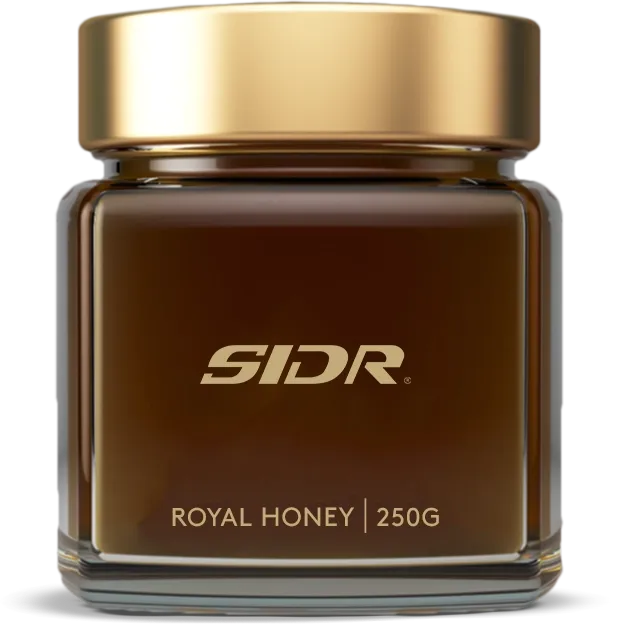Is honey good for you if you have type 2 diabetes?
Views: 3826If you have type 2 diabetes, consuming honey can raise your blood sugar level. But compared with table sugar, it may have health benefits.
Can People with Diabetes Eat Honey?
Some people add honey to their coffee and tea or use it as a sweetener when baking. But is honey safe for people with diabetes? The short answer is yes but only under certain conditions.
People living with type 2 diabetes have to monitor and manage their carbohydrate and sugar intake. All sweeteners may lead to blood sugar spikes. But if your blood sugar level is well managed, you may not need to avoid sweets altogether.
In moderation, honey is not only safe, but it also has anti-inflammatory and antioxidant properties that might reduce diabetes complications.
What is Honey?
Honey is a thick, golden-colored liquid honeybees and other insects, including some bumblebees and wasps, produce.
It comes from the nectar within flowers, which bees collect and store in their stomachs until they’re back at the hive.
Nectar is made up of sucrose (sugar), water, and other substances. It’s roughly 80% carbohydrate and 20% water. Bees produce honey by ingesting and regurgitating the nectar over and over again. This process removes the water.
Afterward, bees store the honey in honeycombs for use as an energy source during the winter when it’s harder to find food.
Although it’s a natural sweetener, honey tastes a bit sweeter than table sugar.
According to the United States Department of Agriculture (USDA), 1 tablespoon of raw honey has about 60 calories and 17 grams of carbohydrates.
Honey also contains many vitamins and minerals, including:
- Iron
- Vitamin C
- Folate
- Magnesium
- Potassium
- Calcium
It’s also an antioxidant, which means it prevents and slows cell damage.
Can You Substitute Honey for Sugar?
Typically, honey may be used in place of sugar in many recipes. But because honey is sweeter than sugar, it’s not a one-to-one swap. When baking, people often substitute 1/2 cup to 2/3 cup of honey for 1 cup of sugar.
But people with type 2 diabetes should use sweeteners like honey and sugar infrequently. Both can contribute to blood sugar spikes, which may cause type 2 diabetes to progress at a quicker rate.
Honey Can be Raw or Processed
Raw honey is also known as unfiltered honey. This honey is extracted from a beehive and then strained to remove impurities.
Processed honey, on the other hand, undergoes a filtration process. It’s also pasteurized (exposed to high heat) to destroy yeast and create a longer shelf life.
Processed honey is smoother, but the filtration and pasteurizing process do remove some of its nutrients and antioxidants.
About 300 different types of honey exist. Honey types are determined by the source of the nectar, or what the bees eat.
For example, blueberry honey is retrieved from the flowers of the blueberry bush, whereas avocado honey comes from avocado blossoms.
The nectar source affects the taste of the honey and its color.
How does honey affect blood sugar?
Because honey is a natural sugar and a carbohydrate, it’s natural for it to raise your blood sugar.
As with any sweetener, honey is best consumed in moderation.
Can Honey Prevent Type 2 Diabetes?
Even though honey may increase insulin levels and possibly decrease inflammation, there does not appear to be any conclusive research to suggest that honey has a preventive role in diabetes.
Are There Risks to Eating Honey if You Have Diabetes?
There may be risks to consuming honey, especially if you have diabetes. These may include:
- Blood sugar spikes: Because honey can affect blood sugar, doctors may recommend that you avoid it and other sweeteners until your diabetes is well managed.
- Some varieties contain added sugar: If you purchase processed honey from a grocery store, it may also contain sugar or syrup. The added sweetener can affect your blood sugar differently.
- Infections: People who are pregnant and people with compromised immune systems should not consume raw honey as it’s not pasteurized. Consuming raw, unprocessed honey with a compromised immune system can cause dangerous infections.
Keep in mind that honey is sweeter than sugar. If you substitute honey for sugar, you only need a little.
Honey should be consumed in moderation. Speak with a healthcare professional before using it as an added sweetener.
If your diabetes is well managed and you want to add honey to your diet, consider choosing raw natural honey if you are not pregnant or immunocompromised.
These types may be safer for people with diabetes because all-natural honey does not have any added sugar.
Are There Benefits to Eating honey if You Have Diabetes?
There may be some potential benefits to eating honey or replacing sugar with honey if you have diabetes. These may include:
- Antioxidants: A diet rich in antioxidants can help protect or slow damage to cells. However, doctors and dietitians typically recommend getting antioxidants from other sources with less sugar and more nutrients like fruits and vegetables. Researchers have studied most of the antioxidant benefits of honey through research related to wound healing.
- Anti-inflammatory properties: The anti-inflammatory properties in honey could potentially reduce diabetes complications. Inflammation can lead to insulin resistance, which happens when the body does not respond properly to insulin. However, these benefits may have more merit in wound healing.
- Gut microbiome health: The oligosaccharides in honey may benefit the gut microbiome.
Disclaimer
You should always consult with your physician or other health care professional before taking any nutritional, herbal remedies or adopting any health advice, whether offered on the Site or otherwise.
you may also try
didn’t get the answer you were looking for?
contact us


